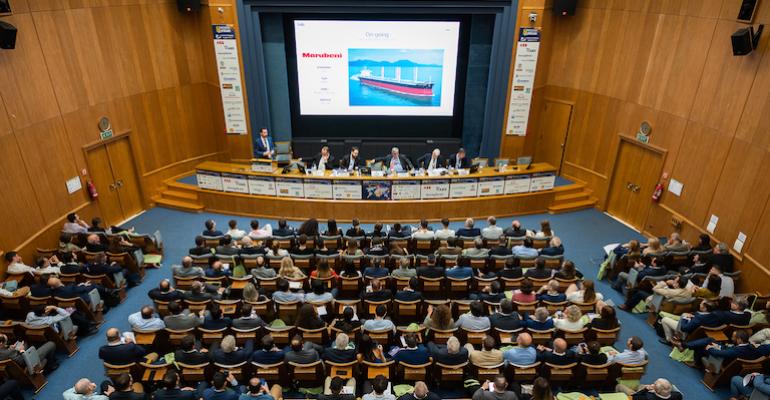Discussing ‘Solutions heading for zero carbon’ at the Greener Shipping Summit in Athens last week, Michael Jeppesen, Promotion Manager, MAN Energy Solutions, said the company will “by the end of 2024, be able to deliver our first ammonia powered engine, a commercial engine, that will be delivered to a Japanese shipyard”.
“We have positive results from our tests. A handful of engines will be in use in 2025-26,” said Jeppesen.
Christoph Rofka, Division President for Medium and Low Speed Products, Accelleron, spoke about the need for flexibility in product development as he looked at challenges in adopting new fuels. “Ammonia, methanol and LNG will be the future fuels. By 2030 all newbuilds will be dual fuel capable. The technology will ramp up faster than the availability of these new fuels,” said Rofka.
Converting raw data to actionable intelligence was addressed as was carbon capture storage (CCS) and navigating energy efficiency dilemmas in the CII era. Powering the world with wind was discussed as was energy saving devices (ESD), zero carbon methanol gensets and an overview of solutions for decarbonising the shipping industry.
With regards to useful tools in the decarbonisation process, Nikos Liapis, President, Hellenic Institute of Marine Technology (HIMT), stressed that AI has emerged as a powerful weapon in the push to make the industry sustainable.
“The best way to achieve decarbonisation in the short term is by optimising ship operations,” he said. AI can help reduce consumption, collect all data on carbon emissions and prevent engine deficiencies, added Liapis. “On training and getting the right skills, the biggest problem here is finding the right personnel to do this. There must be a lot of training to be sure that crews have the right skills,” said Liapis.
Copyright © 2024. All rights reserved. Seatrade, a trading name of Informa Markets (UK) Limited.
Add Seatrade Maritime News to your Google News feed.  |

